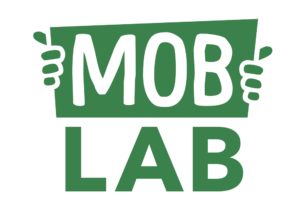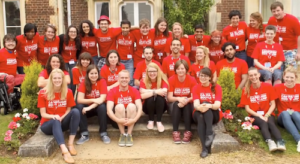For Change.org’s director of campaign innovation Johnny Chatterton, there is nothing more powerful than a campaign driven by people — especially when it becomes so big an organization can no longer control it.
That was the case for Johnny when running one of 38 Degrees’ fastest growing campaigns ever, its Save our Forests campaign in 2011.
It was members of 38 Degrees, a 850,000 people-powered campaigning organization, who voted in favor of creating a Save our Forests campaign. The campaign successfully mounted a 500,000 strong movement calling on the United Kingdom government to not sell the country’s forests.
According to Johnny, what made the campaign effective was the acknowledgement that people wanted to take part. The 38 Degrees team found creative ways to involve them.
More than 500,000 people signed the “Save Our Forests” petition and 100,000 people e-mailed or called their MPs urging them to stop the forest sell-off.
38 Degrees asked members to fund a people-powered YouGov poll, which found that 84 per cent of the public wanted the forests kept in public hands.
Building on this momentum, 38 Degrees members chipped in nearly £60,000 ($91,670 U.S.) to pay for ads in national newspapers to highlight that 84 per cent of the British public opposed the forest sale.
The campaign was growing at an unprecedented rate and the 38 Degrees team of three knew they couldn’t manage it alone. So they began encouraging people who were really involved to set up their own local groups. More than 30 groups cropped up.
“That meant we had local groups all over the country putting up posters, talking to the press and holding rallies,” says Johnny.
“I think that was how we won, being relaxed enough and realistic enough to know the members created this movement and our job was to help steer it and direct it but to let it run wild and not try and hold it back.
“That’s what excites me about supporter-led campaigning. If you can enable those movements, a lot of awesome stuff can happen.”
Johnny’s latest work focuses on the untapped potential for mobile mobilisation.
After leaving 38 Degrees, Johnny began researching the success of other supporter-led campaign organizations like Moveon.org, Avaaz, and GetUp! Not only were these groups present only North America, Europe and Australasia, none of them had figured out the mobile Internet.
“That’s a big problem because the emerging world only owns basic smart phones,” says Johnny.
Johnny became fascinated by the potential for supporter-led campaigning in the emerging world with improved technology.
“I’m pretty convinced that Internet-driven campaigning is going to become a global phenomenon,” he says.
It’s this passion that landed him his current role at Change.org, where he’s tasked with the goal of innovating Change.org’s technology to empower as many people as possible around the world.
It’s seeing people harness the power of personal story to drive change on issues they care about that has Johnny predicting the role of professional campaigners driving professional campaigns will evolve.
“If you can get professional campaigners supporting campaigns and advising them that’s when we start to see huge, small-scale change across the world,” says Johnny.
Johnny points to examples like the No More Page 3 campaign in the U.K. started by actress and writer Lucy-Anne Holmes. Lucy-Anne, who has no professional campaigning experience, has been able to galvanize 100,000 people to sign her petition. Most recently Girlguiding U.K., which has 530,000 members, issued a statement, which supports the campaign calling for “No More Page 3.”
Rupert Murdoch himself hinted several months ago that he may scrap the feature. He was responding to a tweet asking him to scrap page three, which was first published in 1970.
He tweeted: “page three so last century! You maybe right, don’t know but considering. Perhaps halfway house with glamorous fashionistas.”
Johnny’s most recently helped launch Campaign Bootcamp, a five-day residential course for young people who want to run more effective campaigns.
Johnny was one of five guests attending Greenpeace’s Digital Mobilisation Skillshare in February.
Stay Connected: @j_chatterton
Related Posts:
Q&A with SignOn: Letting the people lead
People-led campaigning platform launches in India, stops industrial dumping
Do you have an innovation in mobilisation and people-powered campaigns? Share it with Mob Lab by contacting moblab@greenpeace.org.



